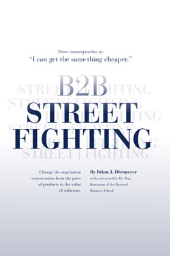I recently heard a renowned negotiation guru refer to Professional Sports Agents as “Parasitic Intermediaries.” I immediately had a flashback to the movie Jerry Maguire, and the famous line: “show me the money!” However, if we think about it, it does make quite a bit of sense. Why would someone hand over their power to negotiate to another? Agents will usually tell you it’s because they have more ‘experience’ negotiating and are more ‘familiar’ with the details and mechanics of negotiating with major league franchises; and in most cases, that may be true. However, they do not know, better than you, what it is you value, want or need.
 In many respects, hiring an agent is similar to a company hiring a purchasing manager that buys on behalf of his company, but is solely focused on his interests (political or financial). If he is not focused on the needs of the company as a whole, or of the specific stakeholders he serves, he is in effect an agent. Companies, as well as professional athletes need to make sure that they are protected from possible conflict of interest issues. These items increase trust and collaboration, and promote better long-term results:
In many respects, hiring an agent is similar to a company hiring a purchasing manager that buys on behalf of his company, but is solely focused on his interests (political or financial). If he is not focused on the needs of the company as a whole, or of the specific stakeholders he serves, he is in effect an agent. Companies, as well as professional athletes need to make sure that they are protected from possible conflict of interest issues. These items increase trust and collaboration, and promote better long-term results:
- Manage:
- Mutual understanding of long-term goals and objective’s ranges.
- Limited authority to make commitments.
- Communication throughout the process.
- Alignment of compensation with your interests.
- Insist on expanding the pie:
- Find creative ways to make the pie bigger for both parties.
- Analyze all options:
- Understand the moving parts of the deal, and;
- The consequences of no-agreement for both sides.
Having said all this, the question remains: Why do professional athletes relinquish their power to negotiate independently and pay dearly for it (4-10%)? My only conclusion, is that it is out of fear or ignorance. Because if professional athletes decided to negotiate without an agent (and many have), they would more than make up for the agent fees, and possibly end up with better deals as they have their own interest at hand.





